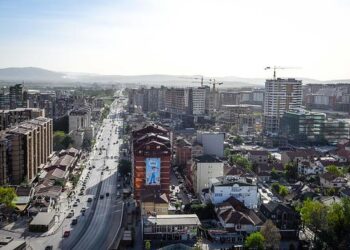Overcoming Inertia in Kosovo: Navigating the Road Ahead
Kosovo stands at a critical crossroads as it faces persistent political and economic inertia that continues to hamper its progress. Despite years of efforts toward stabilization and development, entrenched challenges-from political deadlock to socio-economic obstacles-have slowed the young nation’s trajectory. In a recent analysis by the Clingendael Institute, experts dissect the underlying causes of this stagnation and explore viable pathways to invigorate Kosovo’s momentum. This article delves into the complexities outlined in the report, shedding light on what it will take for Kosovo to break free from its current impasse and advance toward a more stable and prosperous future.
Challenges to Political Stability and Economic Growth in Kosovo
Political dynamics in Kosovo continue to impede the country’s advancement, with entrenched divisions and fragile institutions creating a cycle of uncertainty. Key obstacles include:
- Fragmented political landscape: Multiple parties struggle to form stable coalitions, leading to frequent government reshuffles.
- Weak rule of law: Judicial inefficiencies and perceived corruption erode public trust and deter foreign investment.
- External pressures: Regional disputes and unresolved status issues hamper Kosovo’s international integration.
Economically, Kosovo faces a tough road to sustainable growth, exacerbated by low employment rates and limited industrial diversification. The table below illustrates some core economic indicators that highlight the challenges ahead:
| Indicator | Value | Regional Avg. |
|---|---|---|
| Unemployment Rate | 25.7% | 14.3% |
| GDP Growth (2023) | 3.5% | 4.1% |
| Foreign Direct Investment | 1.2% of GDP | 3.8% of GDP |
Addressing these intertwined issues requires comprehensive reforms, enhanced governance, and a clear strategic vision to unlock Kosovo’s potential and break free from the inertia that has long stifled its progress.
Bridging Ethnic Divides to Foster National Cohesion
Effective reconciliation in Kosovo hinges on creating platforms where diverse communities can engage in dialogue beyond political rhetoric. Genuine engagement requires addressing historical grievances while promoting shared interests such as economic development, education, and security. Grassroots initiatives, supported by local leaders and international partners, have demonstrated the power of inclusive approaches to dismantle stereotypes and build trust. Prioritizing community-driven projects enables tangible cooperation that transcends ethnic lines and nurtures a collective identity.
Key elements contributing to sustained unity include:
- Inclusive policy-making: Ensuring minority representation within governance structures.
- Education reform: Promoting multicultural curricula emphasizing coexistence.
- Economic incentives: Joint ventures that foster inter-ethnic collaboration.
- Media responsibility: Encouraging balanced narratives to counter divisive propaganda.
| Initiative | Impact |
|---|---|
| Interethnic Youth Forums | Increased mutual understanding |
| Shared Business Grants | Boosted local economies |
| Joint Cultural Festivals | Enhanced social cohesion |
| Cross-community Education Programs | Reduced prejudices |
Strategic Policy Interventions to Catalyze Reform and Development
Effective policy interventions must focus on dismantling systemic barriers that have long hampered Kosovo’s progress. Prioritizing transparency and accountability can restore public trust, which remains a critical factor in gaining citizen buy-in for reforms. A multifaceted approach includes strengthening institutions, enhancing judicial independence, and fostering an environment conducive to foreign investment. Additionally, targeted social policies aimed at youth employment and education will lay the groundwork for sustainable development, creating a more inclusive economy capable of withstanding external shocks.
- Introduce merit-based recruitment in public administration to reduce nepotism and improve service delivery.
- Expand digital governance to increase efficiency and reduce corruption opportunities.
- Promote regional cooperation to accelerate integration into European markets.
- Support local entrepreneurship through access to finance and capacity building.
| Policy Area | Key Intervention | Expected Outcome |
|---|---|---|
| Judicial Reform | Establish independent oversight bodies | Greater rule of law and investor confidence |
| Economic Development | Implement SME support programs | Job creation and innovation boost |
| Governance | Expand e-Government services | Reduced corruption and improved access |
| Social Policy | Increase vocational training | Enhanced employability of youth |
To Conclude
As Kosovo continues to navigate the complex path toward political stability and economic progress, overcoming inertia remains a critical challenge for its future. The insights provided by Clingendael underscore the urgent need for concerted efforts from both domestic actors and the international community to break the cycle of stagnation. Only through sustained dialogue, reform, and cooperation can Kosovo hope to realize its full potential and secure a more prosperous and stable tomorrow.
















